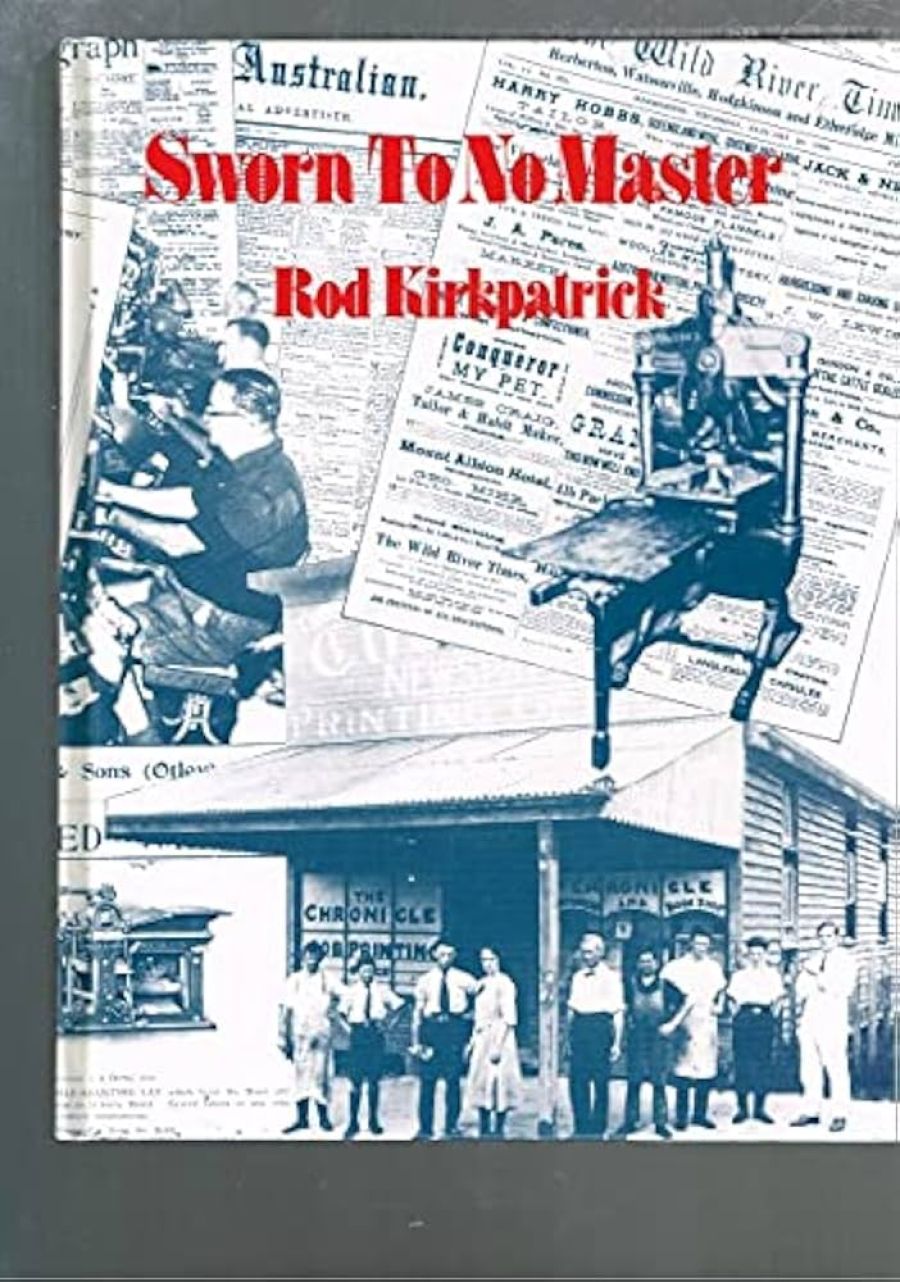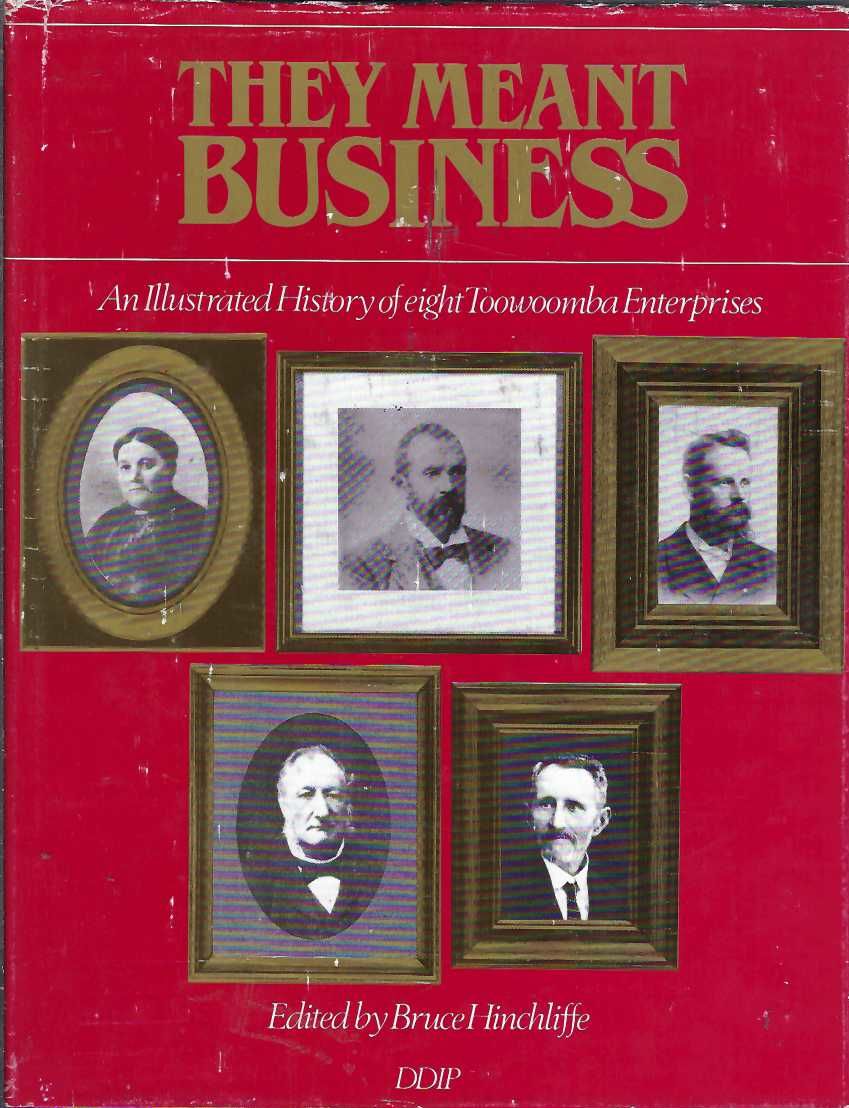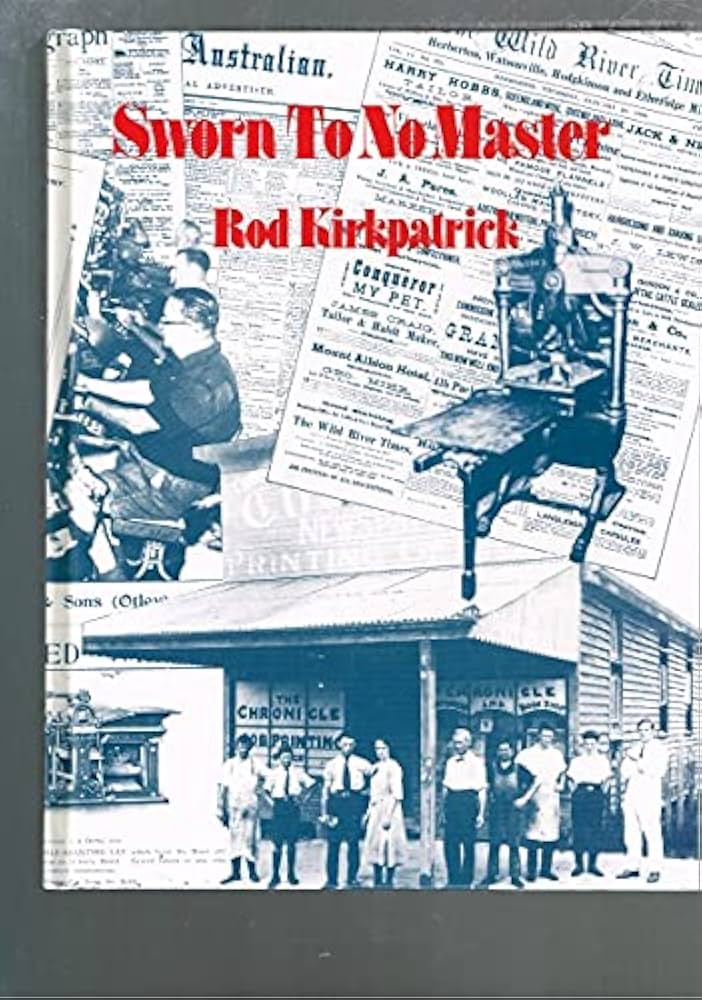
- Free Article: No
- Review Article: Yes
- Article Title: Queensland’
- Article Subtitle: One Side of the Story
- Online Only: No
- Custom Highlight Text:
Among the many attributes of the editor of ABR is his capacity for whimsy. (The current acting editor would like to think she shares this trait and has therefore left this bit in, believing, with Muriel Spark, that ‘the more truths and confusions the better.’) He knows full well of my own political, industrial, and academic struggles in the chill of sunny Queensland; I am, in a sense, the last person who should have been asked to review these books.
Having been set the task, however, I’ll try to look at the situation through the wrong end of a metaphorical telescope, and, thus distancing myself, I evaluate as follows.
- Book 1 Title: They Meant Business
- Book 1 Subtitle: An illustrated history of eight Toowoomba enterprises
- Book 1 Biblio: Darling Downs Institute Press, $24.95 hb, 240 pp
- Book 1 Cover (800 x 1200):

- Book 2 Title: Sworn To No Master
- Book 2 Subtitle: A history of the provincial press in Queensland to 1930
- Book 2 Biblio: Darling Downs Institute Press, $16.50 hb , 334 pp
- Book 2 Cover (800 x 1200):

Two general remarks: first, it is pleasing to see the recent ride of Australian provincial history. The macro-history of this nation did not evolve holus-bolus: it is made up of many human and social microcosms. Esteemed historians such as Duncan Waterson and Maurice French have made a substantial contribution towards our understanding of our national heterogeneity, and the two books under consideration make worthy additions to this process.
Secondly, the Darling Downs Institute Press is to be commended for extending the limits of what a C.A.E. can be expected to achieve in its attempted involvement with the broader community.
They Meant Business is an interesting presentation of the refracted history of a city which now numbers close to 80,000 inhabitants. In keeping with the general social stratification of Toowoomba, however, it is essentially middle-class, God-rewards-the-industrious, bourgeois, and capitalistic. It is a collection of well-researched and clearly told tales of a handful of mini-tycoons. Little, if anything, is said about the role of the workers, about industrial conditions, about various forms of opportunism and exploitation which are commonly the stepping-stones of empire-builders everywhere.
This is not an adverse criticism. A book like this had a perfect right to be written; but it cries out for the telling of the other side of the story. Most of the contributors are well known to me; some are close acquaintances. None of them is a professional historian, but, in every case, they have worked and written well within their accepted terms of reference.
I was a colleague of Rod Kirkpatrick when he was doing his early research for Sworn To No Master. I know and respect him as a meticulous researcher, am industrious scholar, and a lecturer who demanded the highest of professional standards from his students in journalism.
When I listen to A.M., and hear extracts from ‘What The Papers Say’, I am often struck by the fact that the newspapers of, for example, Launceston and Newcastle are cited with fair frequency, but never is a word considered worthy of quoting from the Queensland provincial press. There is a good reason for this, and Rod Kirkpatrick makes it clear - though his intentions may be quite different from mine. ‘The papers prospered,’ he says, ‘because they served their communities so well’. Indeed they no doubt did, and so. But if identification with Establishment interests, political conservatism, union-bashing, latent racism, the concealment of reality in order to convince readers that all is well in their pretty city - if all this is serving their communities so well, then it is a terrible indictment of those purblind communities. By an interesting irony, that quotation is the concluding line of a chapter entitled ‘A microcosm of Queensland: What the papers printed.’ To which I add no comment.
My concluding view is that, whereas both these books are sound I content and handsome in presentation, their appeal will be limited – beyond those who have special interest in provincial history as such – to citizens of Queensland, where for vigorously different reasons, those on either side of the barricades will find them stimulating


Comments powered by CComment